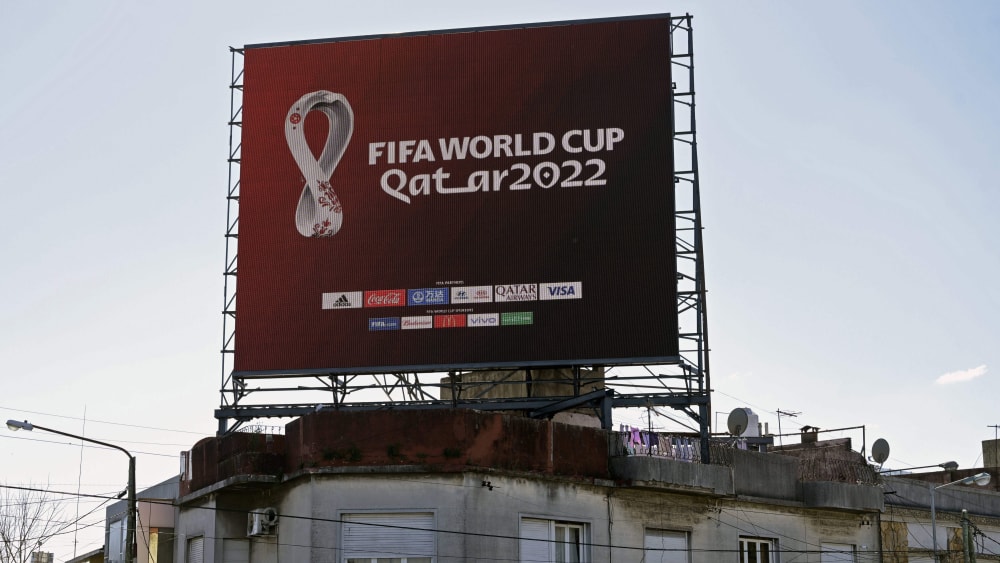For almost eleven years, since the scandal-ridden awarding of the WM 2022, the world has been looking to Qatar. Gradually, the pressure for reforms on the emirate increased, and just under a year before the tournament, Amnesty International is drawing a sobering balance.
In their “Reality Check 2021”, the organisation’s experts conclude “that progress in 2021 has stagnated and old abusive practices have even resurfaced”. In other words, despite a change in the law in the summer of 2020, massive dependencies of migrant workers on their employers still exist. Actually, the emirate had agreed to make it easier to change jobs or leave the country, thus weakening the exploitative practices of the so-called kafala system.
“However, workers reported to Amnesty International that they continue to face significant hurdles when changing jobs and are pressured to stay,” the report says. It adds: “Qatar has introduced a number of reforms in favour of migrant workers since 2017. However, these reforms are not being adequately implemented, which means that exploitation continues.” Various of the emirate’s sporting partners have praised the alleged progress made as a result of critical discourse in the wake of the World Cup award.
“Implementation of reforms significantly stalled “
In practice, however, there seem to be extreme gaps. On the one hand, the reforms initiated are unique in the region, emphasises Katja Müller-Fahlbusch. “However, the reform implementation is half-hearted and not very consistent. Last year, the implementation of reforms stalled considerably, although international pressure on Qatar was considerable,” says the expert for the Middle East and North Africa region at Amnesty International Germany. She speaks of resistance from the Qatari business community and calls on the government to “consistently punish labour law violations and hold abusive employers accountable. If it fails to do so, the Qatari government should not be surprised that questions are raised about the political will for real reform. “
Müller-Fahlbusch sees “FIFA, as the host of the World Cup, as having a duty under the UN Guiding Principles on Business and Human Rights to ensure that human rights are not violated and that remedial action is taken if they are.” The World Federation, he said, must independently, regularly and diligently review the human rights situation and not rely on third parties for this review. “In order to create transparency and credibility, FIFA should also publicly report on abuses as well as measures taken to remedy them. “
Sport has problems with public criticism of Qatar
Publicity and criticism of Qatar is something that sport sometimes struggles with, even though there are repeated reports of inhumane conditions for migrant workers in the desert state. No matter how many deaths on the construction sites have been revealed. The officials like to say that things are being addressed.
“Bayern Munich has a partnership with Qatar Airways and I was never a pharisee, if I may say so. We have received good money from this contract,” said ex-FCB CEO Karl-Heinz Rummenigge. The Munich team would be involved in socio-political matters in the Emirate – but how concretely is the question. Rummenigge is not wrong when he explains: “In principle, it must be said that of all the Arab states, Qatar is currently making the best or greatest improvements in terms of human and labour rights. So much for the theory, which the latest Amnesty report shows to be at least patchy in practice.
T-shirt campaign by the DFB? “A good starting point “
The fact that the German Football Association has adopted a position on the World Cup in Qatar is praised by Müller-Fahlbusch. “The players of the national team have also sent an important signal with their T-shirt campaign. All this is a good starting point. However, in our view, public statements must not be one-off if they are to have any effect,” the Amnesty expert calls for the pressure to be kept up.
“In our view, the DFB, as an important member of FIFA and UEFA, can do even more to ensure that human rights in sport become a central issue at the international level as well. If FIFA, as for example in the awarding of the 2022 Club World Cup to the United Arab Emirates, throws its own human rights principles overboard, then the DFB can and should definitely take a public stand. “





